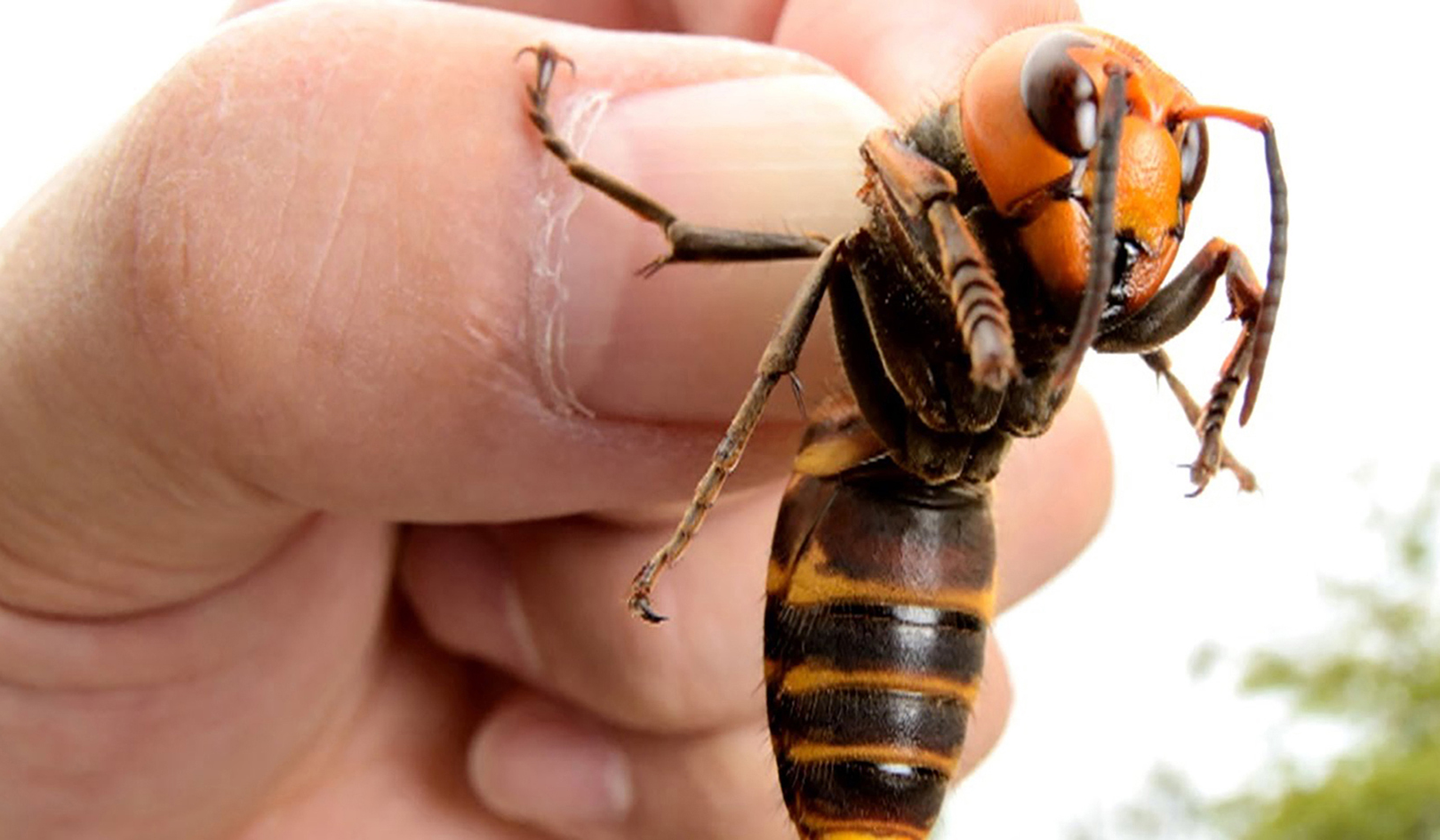UK (Parliament Politic Magazine) – The British Pest Control Association (BPCA) has received credible reports of sightings of an invasive species from the National Bee Unit (NBU). These sightings have occurred in Northumberland, Dorset, and Kent.
Natalie Bungay, a representative from the BCPA, advises, “If you are uncertain about the identity of the striped flying insect buzzing around your garden, we encourage you to contact a BPCA member. They possess the necessary technical expertise to identify and effectively handle any infestation.”
If you have concerns regarding hornet activity, it is advisable to reach out to a pest professional, preferably a member of the British Pest Control Association (BPCA). These experts possess the necessary technical knowledge to distinguish between an Asian hornet and a native insect.
How to Identify an Asian Hornet
The public, beekeepers, and professional pest managers are being urged to stay vigilant in spotting signs of Asian hornets, especially near blooming ivy, as these insects are particularly attracted to it.
It is important to note that Asian hornets should not be confused with Asian giant hornets. Asian hornets have a predominantly black abdomen and distinctive yellow legs.
Typically, these insects only display aggression towards humans when they perceive a threat to their nest.
In terms of size, Asian hornets are smaller than native hornets and do not pose a greater risk to human health compared to native wasps and hornets. Following the sighting of this species last year, Nicola Spence, Defra’s chief plant and bee health officer, emphasized the need for early detection:
“By promptly reporting any potential sightings, we can swiftly and effectively eliminate the threat posed by Asian hornets. That’s why we are working diligently to locate and investigate any nests in the area after confirming the sighting.”
While Asian hornets do not pose a greater risk to human health than other wasps or hornets, their potential to harm honeybee colonies and other beneficial insects is recognized.
What to Do If You Get Stung by an Asian Hornet
In the unfortunate event of an Asian hornet sting, it is crucial to take immediate action to alleviate the discomfort and minimize any potential risks. A health expert strongly advises washing the affected area thoroughly with soap and cool water.
To prevent the venom from spreading further, it is recommended to apply ice to the sting site. Unlike other stinging insects, Asian hornets do not leave a stinger behind, so there is no need to worry about removing one.
However, it is essential to be vigilant and seek medical attention if you have been stung multiple times or experienced any signs of an allergic reaction. Jay Riggs, a representative from Zeal CBD, emphasizes the importance of promptly seeking professional medical care in such cases.
If you continue to experience pain, taking an antihistamine or applying hydrocortisone cream or calamine lotion can help alleviate the stinging and itching sensation. Remember, swift and appropriate action is key when dealing with an Asian hornet sting.
Read More: TikTok Becomes Leading News Source For The Teenagers In The UK
When Should You Seek Medical Attention after Being Stung by an Asian Hornet?
If you experience difficulty breathing, wheezing, or shortness of breath following a sting, it is possible that you are having an allergic reaction. In such cases, Jay advises seeking immediate medical attention if you feel tightness in your throat or have difficulty swallowing.
If you have a known allergy to wasp, bee, hornet, or yellow jacket stings, it is highly recommended to carry a bee sting kit at all times and be familiar with its proper usage.
If you’ve been stung by an Asian hornet, it’s usually not a cause for immediate concern, but there are situations where seeking medical attention is advisable. If you experience severe pain or swelling around the sting site that continues to worsen over time, or if you develop difficulty breathing, dizziness, or a rapid heartbeat, it’s important to see a doctor immediately.
These symptoms could indicate a severe allergic reaction known as anaphylaxis, which requires prompt medical treatment. Additionally, if you have been stung multiple times or have a history of severe allergic reactions to insect stings, it’s best to err on the side of caution and seek medical advice.
A healthcare professional can properly assess your symptoms and provide appropriate treatment options such as antihistamines or epinephrine injections to alleviate any potential complications from the sting.


